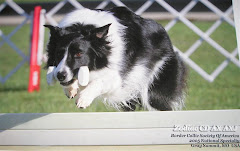Veterinary medicine is troubled. This is not a rant or complaint, just the way it is.
At some point "those that know" determined there was a shortage of veterinarians. There wasn't really. There might be a shortage of those interested in food animal practice. But there is also a shortage of communities who can afford to keep a full time food animal veterinarian in business. More vets won't solve that problem. There is a shortage of veterinarians who want to serve in food safety, public healthy, and government. This does not equate to a need for more veterinarians in general.
Anyway, the "solution" to this "problem" was for more veterinary schools to open up and for class sizes to increase. On top of this, the economy weakened, expenses increased, and funding for higher education was cut. To accommodate for this, universities further increased class size and raised tuition. Veterinary school has become ridiculously expensive. Average student debt load when I graduated in 2004 was $80,000. I felt lucky to owe less than this (I am still paying on it, however). Today, the average debt is $150,000. Students paying out of state tuition or attending private universities, or those that also have undergraduate debt often owe significantly more than that. And let me tell you, starting salaries are nowhere near that amount. As the economy continues to stumble along, the surplus of new veterinarians struggle to find jobs that pay well enough that they can both survive and pay their student loans. This is problem number one.
Problem number two is the lack of standards in veterinary care. One might assume that each doctor, at each clinic, will treat your animal with the most current and up to date therapies, medications, and diagnostic tests. Sadly, this is not the case. Although continuing education is required, there are apparently some veterinarians who either don't believe in advances in medicine, or just choose to ignore them. There are some that cut corners and quite frankly do things I know they were never taught in school. There are veterinarians who don't believe in pain control, don't use modern gas anesthetics with monitoring devices, don't use protective gear when taking radiographs, use surgery packs on multiple animals, re-sterilize blades and more. Some continue to perform procedures and give medications that are no longer recommended but fail to offer or perform those that are recommended. I recently heard of one backwoods doctor who diagnosed a yeast infection of the ear by sticking her finger in the ear, scooping out some debris, and sniffing it. Seriously? I'm certain no one was ever trained to do that. It's unprofessional, and quite simply, embarrassing to our profession. How would you react if your doctor or pediatrician behaved this way?
Now take all those new grads with problem number one and send them out into the world of problem number two and let them try to find an acceptable job! I feel sorry for them. Factor in that even if they do find a well-paying job in a decent clinic their boss may be crazy!
So that's where we are now. What is in the future? Hard to say. But there is a continuing trend of new graduates (myself included) who don't want to spend every waking minute working, putting in 50, 60, or 70 hour weeks at our own clinic, taking our own emergencies, etc. There is nothing inherently wrong with this. Everyone deserves to have a life and family as well as a career if they choose to. There are also many younger veterinarians who don't want to own a clinic, regardless of the hourly work week. This is understandable-most don't go to veterinary school because they want to be business owners. And many, to be honest, don't make good business owners anyway. And there are some who, although they would like to buy a practice, but are saddled with too much student debt to do so. This scenario is particularly troublesome to older practitioners who planned to sell their practice as their retirement plan. Some speculate these changes will eventually lead to a world where most veterinary clinics are either corporate (like Banfield or VCA) or low-cost and non-profit clinics run by shelters or other humane organizations. Only time will really tell. Especially since no one has any really good solutions. After all, it's pretty unlikely that universities will close, reduce class size and cut tuition. Nor is it likely that clients will pay exponentially more for veterinary care, especially when they can get a backwoods spay and rabies shot for twenty-five dollars.
The Big Number 3
1 week ago


.jpg)
.jpg)



.jpg)



6 comments:
Interesting and somewhat depressing post...
Veterinary medicine has always captivated me. I would have loved for all the world to be a vet, but I knew that my pathetic math skills would never cut it.
I strongly considered going the vet tech route, but by the time I got serious about it I was out on my own and paying my own way. After looking into tuition costs and yearly salary of the average technician in my area, I couldn't justify it. Starting wage seems to be around $10/hour and you can honestly make more than that working in a local factory.
To work in the veterinary industry you honestly have to love what you are doing and do the work for the satisfaction of helping animals more so than making it rich. It's unfortunate that there is such a gigantic cost of education that goes with it. :o(
From what I've seen, the push for more large animal vets hasn't really worked....
These are tough times for most professions. A few years ago, we were warned about a drastic teacher shortage when baby boomers began to retire....now, with increasingly class sizes and reduced subject offerings, teachers are hard pressed to find work and handed pink slips year after year.
I was at one of our vets this week, and the receptionist told someone on the phone that they are open until 11PM every night! I couldn't believe it. But, that is the only way to stay competitive these days, by offering flexible hours. Most in the area are already open on Saturday, and some on Sunday. I'm wondering if all these extended hours will put the afterhour (and very expensive) emergency vet clinic out of business....
I've been to one of those vets who falls into the category number two, back when I got my first dog, assumed all vets are created equal, and picked the cheapest clinic to go to. After being told microchips can't, don't, and never will move from where they are implanted, and that my dog's serious neck swelling directly after getting her microchip implanted was a bug bite (despite not being able to find an actual bite anywhere), I started looking around for a new vet. I have to wonder how many of the other things the vet did that were substandard care.
Yip, graduated vet school in 2009. Couldn't get a job. Wound up changing career paths just to get a job (from equine to emergency medicine, quite happy where I am now). Astronomical student debt as an out of stater, and I went to one of the cheapest schools. And people have NO IDEA the hours we put in just to earn enough to get by. I work my normal 50-60 hour work week, then have to pick up relief shifts at other clinics.
Yup all jobs have there negatives. Being a nurse I've worked a lot of weekends ,.holidays and nights. Doing a double on Christmas not my.idea.of fun. Pay isn't great either. So I feel for you. But we chose our paths, and take the good with the.bad. It's just how life is.
interesting post, it sure seems some days it would be a lot easier to be a garbage collector, in some areas the slaries seem pretty good and you dont have to worry about someonoe dying very often. . I LOVE my vets and cherish them because it is not that easy to find someone you just really trust when it involves your best buds and you might not have time to research things on our own.
Post a Comment